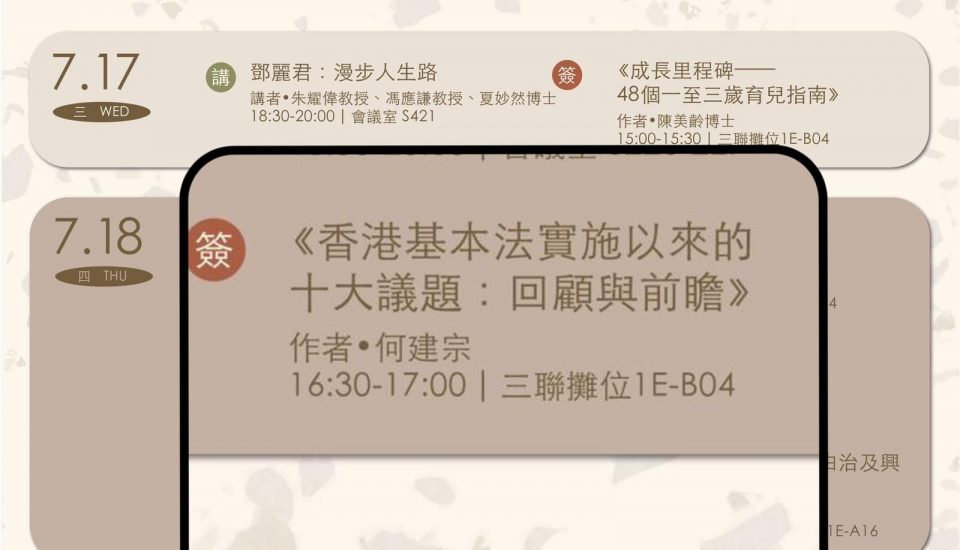Henry Ho: Google is obliged to ensure its search engine returns accurate information

田飛龍:黎智英辯護權案的法理糾結與制度化解

Henry Ho: EDB’s guidelines on teachers’ conduct are timely, necessary

I refer to The Wall Street Journal news report titled, “Google Faces Pressure in Hong Kong Over Search Results for National Anthem”, published on Dec 6, which pointed out the tension between the US tech company and Hong Kong authorities due to the search engine’s display of a protest song as the top search result for the Chinese national anthem. The report further raised the question about whether Google can be compelled to update its search results legally.
It’s universally believed and practiced that there is no absolute freedom when it comes to public speech, and that the freedom of speech has limits under specific circumstances prescribed by law, such as safeguarding national security, ensuring of public resecting order, the right or another person. According to Article 9 of the National Security Law for Hong Kong, the Hong Kong Special Administrative Region government “shall take necessary measures to strengthen public communication, guidance, supervision and regulation over matters concerning national security,” including to those media and the internet. The said protest song, which was used as a war horn by the protestors and rioters during the 2019 social unrest in Hong Kong, is clearly subversive and should be restricted. Although Google is a US-based company, it is required to abide by the local laws of Hong Kong.
The report also mentioned a protest led by a Hong Kong lawmaker against Google’s laissez-faire attitude toward this matter. The report stressed that “it was a rare show of anger against an American tech firm in a city where access to the internet has remained mostly unfettered”, adding that it is “a key reason why global companies operate in the city.” The Journal seems not to fully understand the severity of the case and why Google faces so much condemnation in Hong Kong. It’s not only a matter of which song is the top search result, but also a matter of national dignity and respect, especially when Hong Kong is engaged in international competitions.
The condemnation of Google does not come out of nowhere. On Nov 13, the said protest song was played in place of the Chinese national anthem during an Asia Rugby Sevens event in South Korea. Shortly after the incident, the president of Asia Rugby, Qais Abdulla Al Dhalai, paid a special visit to Hong Kong from Dubai to express the organization’s apology, explaining that it was a mistake made by a junior staffer who has “mistakenly” downloaded the wrong song off the internet since it was — and still is — shown as the top search result, and that the blunder was “entirely without any political or malicious intent”. There was no mention of any disciplinary action toward the “junior staffer”. Dhalai’s explanation may be plausible if it’s a one-time mistake, But as the same protest song was played again at the Asian Classic Powerlifting Championship 2022 held in Dubai on Dec 2, obviously these “blunders” were orchestrated by some malicious people.
The organizers of the sports games should be held accountable for the mix-ups as it is part of their responsibility to play the correct national anthem. On the other hand, the Hong Kong team or representatives who participate in international sports events are also responsible for Ensuring the national anthem to be played is correct.
We are pleased to see that some remedial measures have been taken quickly. The Sports Federation & Olympic Committee of Hong Kong (SF&OC), in consultation with the HKSAR government, has promulgated “Guidelines on Handling the Playing of the National Anthem and Raising of the Regional Flag for Hong Kong Athletes and Teams Engaging in International Sports Events” on Nov 22 with immediate effect. The guidelines stipulate that the team leader as assigned by the relevant national sports association’s executive council or committee should be condescending to respond the correct national anthem with a proper description including its name and two regional flags. The SF&OC will prepare the correct national anthem and regional flags to be collected by the relevant national sports association.
The guidelines also require the assigned team leader to check on site with the event organizer on the national anthem and regional flag once again to ensure that the correct version will be used, and the correct name of the national anthem will be displayed in all captions. In case a wrong song is played, an incorrect flag is raised, or the regional flag is not properly raised, athletes and teams should use their hands to display the sign of “T” to express their objection and call for an immediate correction, according to the guidelines.
For the recent incident in Dubai, the Hong Kong athlete did well in stopping the organizer from playing the wrong anthem. However, since the incident happened after the implementation of the new guidelines, a thorough investigation by the SF&OC and the Culture, Sports and Tourism Bureau should be conducted; and more importantly, penalties should be imposed on the responsible person under the new guidelines. One critical question is, whether the responsible person requested and the organizer followed the required procedures of confirming receipt by the writing materials in w way of email, mobile communication tools (e.g., WhatsApp message), or written note with official signing”? It is understood that the police have already commenced a criminal investigation, but an investigation by the SF&OC and the Culture, Sports and Tourism Bureau would still be necessary as the threshold for any penalty would be much lower.
Google being caught in a public opinion storm is a predictable and reasonable outcome rather than an unexpected one. Despite the fact that many Western media outlets try to justify Google’s behavior and intention as the “protection of the free flow of information”, they can’t justify their hypocrisy and double standards. My research team is conducting a study on implementing Article 9 and 10 of the National Security Law for Hong Kong and preliminary findings suggest that many Western countries have increasingly strengthened state control over online content. For example, the Parliament of the United Kingdom is scrutinizing an online safety bill that empowers the government to require social media companies and search engines to remove content related to terrorism, violence and abuse. Those who fail to comply will face a fine of up to £18 million ($22.2 million) or 10 percent of their global annual turnover. And Singapore also passed a Foreign Interference (Countermeasures) Act and Online Safety (Miscellaneous Amendments) Bill in 2021 and 2022 respectively, which stipulate that social media or website operators should remove or block certain information upon the request of the authority.
In conclusion, these repeated incidents of humiliating our national anthem are clearly coordinated or organized either in Hong Kong or overseas. All search engines have an obligation to abide by local laws including the National Security Law for Hong Kong. It is equally, if not more important that a proper mechanism is in place to prevent such incidents happening again and strict enforcement of the new guidelines should be guaranteed by all sports associations, and severe penalties should be imposed on the association and all related personnel in the case of a breach of the guidelines.
The author is founder and chairman of One Country Two Systems Youth Forum.




